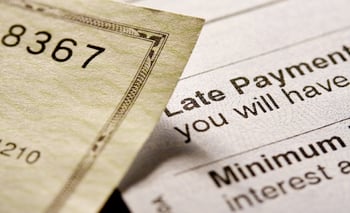
Sometimes, getting customers to buy your product or sign up to your service isn’t the most difficult part of the transaction. After delivering your product or executing the service, the challenge becomes getting the customer to live up to their end of the bargain.
Collecting money is always a sensitive issue no matter what industry or culture your business is in. It needs to be handled courteously and in a business-like manner to avoid putting a strain on customer relations.
Ask any financial consultant or virtual CFO about their tips for collecting late payments and they’ll probably say something along this line: It’s about treading that fine line between professionally firm and reasonably friendly. While your relationship with your customers is important, your business needs a steady cash flow in order for it to continually grow (as well as for you to pay your own bills and commitments).
What’s an entrepreneur to do? Here are our insights into collecting late payments from customers while maintaining a positive relationship with them.
Establish a Friendly but Professional Rapport
As we’ve noted, debt or late payment collection hinges on knowing how to be professional yet friendly in your approach. To do this, be firm and well-documented at all points of the transaction. From the point of sale/contract signing to the collection process, you should always have the necessary documents to record the transactions. For starters:
- Put a date on all quotes and payment dates;
- Be clear about the scope of your service or what’s included in their product purchase;
- Print, deliver and have them receive/date stamp hard copies of the documents; and
- Create ground rules for late payments and outline possible actions; among others.
While it’s important to build rapport with clients and customers, it shouldn’t get in the way of professional responsibilities and obligations.
Create an Optimised Collection Process
Document a step-by-step collection process for your account specialists. When should they send out notices? How frequently should they follow up with clients/customers? What do they do if they can’t collect ?
Implement a process to formalise and standardise your approach. Specify key steps such as:
- When to send out reminder letters;
- When to schedule follow up phone calls;
- How to manage and assist irate or confused clients;
- When to set a face-to-face meeting with the client discuss the payment issue
- When to consider legal action or working with a collections agency.
Find a Win-win Situation
Being confrontational, disappointed or sarcastic about the situation never helps. Don’t alienate and estrange your customers. Instead, be helpful in finding a resolution to the issue at hand. Find ways to help them pay you for your service/product. Consider actions such as asking for an advance right from the very start, restructuring the payment scheme, or reducing interest (if any).
Understand that clients usually don’t just miss payment dates and deadlines without a good reason.By avoiding confrontation and working with them to reslove the problem, you’re much more likely to get a mutually beneficial resolution.
Get on track in improving your business’s financial management system using the latest tech. Download our FREE eBook, The Finance Pillar and find out how you can use cloud computing and other technologies in establishing a sound financial management system in your business.

